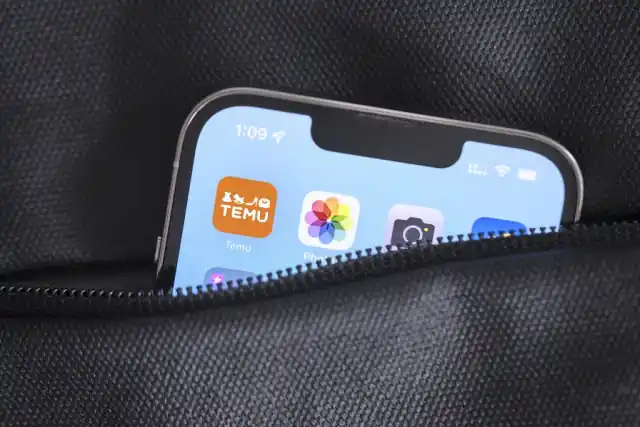
Sofia, Bulgaria – Bulgarian consumers are increasingly alarmed about the resale of goods from Chinese e-commerce giants such as Temu and Shein at significantly inflated prices in local physical and online stores.
Gabriela Rumenova, a spokesperson for the online platform “We, the Consumers,” has voiced these concerns amidst broader European scrutiny of Chinese e-commerce practices.
This development follows a collective complaint filed by the European Consumer Organization (BEUC) to the European Commission against Temu.
The complaint highlights various manipulative tactics purportedly employed by the platform to boost sales.
Among these are allegations that users receive more expensive versions of products after clicking on a specific item and difficulties encountered when attempting to close their accounts.
Manipulative Practices Under the Microscope
In Italy, inspections of cosmetics purchased from Temu have revealed several issues, such as incomplete or missing ingredient lists, raising questions about product safety and transparency.
Similarly, investigations in Germany have uncovered misleading product reviews and deceptive pricing strategies, further fueling consumer distrust.
A striking example of these practices is seen with t-shirts featuring modern designs. On Temu, such items are priced at just over BGN 8, but on Bulgarian-operated websites, the same items are sold for BGN 41, a price disparity of over five times.
This trend of significant markups extends across various product categories. Dresses that cost between 10-15 BGN on Chinese platforms are often sold for double or more on alternative sites.
Consumer Reactions and Social Media Outcry
These price discrepancies have not gone unnoticed by the public. Social media platforms are abuzz with users, highlighting the stark differences in prices for identical products.
While these markups might not be illegal, they contribute to feelings of being misled or cheated among consumers who discover the same products available at much lower prices on other platforms.
Gabriela Rumenova emphasizes the importance of verifying the authenticity of the trader or manufacturer responsible for product quality and safety.
She urges consumers to be particularly cautious when it comes to the materials used in clothing and footwear, as certain chemicals could pose health risks.
This is especially crucial for children’s clothing and goods, where stringent safety standards are paramount.
The Broader European Context
The BEUC’s complaint against Temu is part of a broader European effort to regulate and scrutinize the practices of major Chinese e-commerce platforms.
This collective action seeks to address the systemic issues that consumers face, ranging from misleading advertising to unsafe products.
In response to these revelations, Rumenova advises consumers to exercise caution when shopping online.
She highlights the importance of checking whether platforms accept multiple forms of payment and warns against sites that only accept credit card payments, as these might pose a higher risk of fraud.
Calls for Greater Transparency and Regulation
The growing concerns over price gouging and deceptive practices have sparked calls for greater transparency and regulatory oversight. Consumer protection advocates argue that more stringent measures are necessary to ensure that platforms like Temu and Shein adhere to fair trade practices and provide accurate information to consumers.
In the meantime, Bulgarian consumers are advised to be vigilant and informed.
Verifying product details, comparing prices across different platforms, and understanding the potential risks associated with online shopping are crucial steps in protecting oneself from falling victim to exploitative practices.
Real Stories from Bulgarian Consumers
Maria, a 32-year-old from Sofia, shares her experience: “I bought a dress from a local online store for 45 BGN, only to find the exact same dress in Temu for 12 BGN. I felt cheated and immediately returned the product. It’s frustrating to see such a huge price difference for the same item.”
Similarly, Ivan, a father of two, recounts his concerns: “I purchased some children’s toys online, only to realize later that they were resold items from a Chinese site, marked up more than three times.
The safety information was also incomplete, which is very worrying when it comes to my kids.”
Expert Opinions and Advice
Experts suggest that consumers should:
- Research Products Thoroughly: Before making a purchase, check multiple sources for the same product to compare prices and ensure you’re getting a fair deal.
- Verify Seller Information: Ensure that the seller is reputable and provides clear information about the product’s origin and safety standards.
- Be Cautious with Payment Methods: Use secure payment methods that offer buyer protection. Avoid sites that only accept credit card payments, as these could be more prone to fraudulent activities.
- Check Return Policies: Ensure that the seller has a clear and fair return policy in case the product does not meet expectations.
Moving Forward
As the European Commission considers the BEUC’s complaint, it is likely that there will be increased scrutiny and possibly new regulations aimed at protecting consumers from such exploitative practices.
In the meantime, consumer awareness and vigilance remain the best defenses against unfair pricing and deceptive practices.
Bulgarian authorities and consumer protection organizations continue to monitor the situation closely, advocating for greater transparency and accountability from e-commerce platforms.
By staying informed and cautious, consumers can navigate the complex landscape of online shopping more safely and effectively.
The current situation underscores the need for a balanced approach that protects consumer rights while fostering a fair and competitive market.
As the conversation continues, it is hoped that both regulatory bodies and e-commerce platforms will take steps to address these concerns, ensuring a safer and more transparent shopping experience for all.
This article was created using automation and was thoroughly edited and fact-checked by one of our staff editorial members
